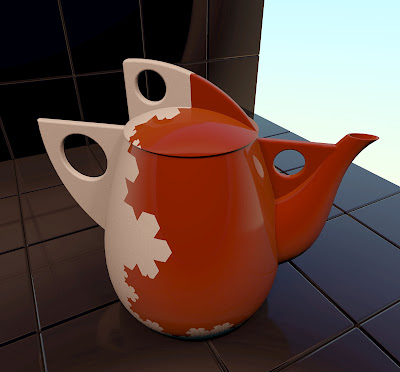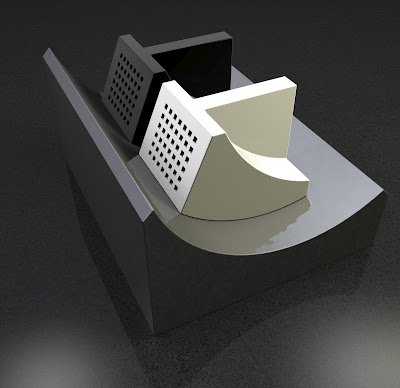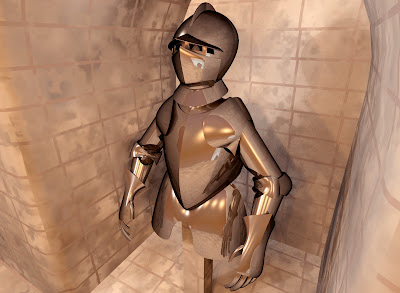Good news.
Concordia accepted me into the Film Animation Major program.
And it seems many of my ACAD credits will be accepted at Concordia, which is an extra bonus.
Kyler
Art, Animation, Drawing and 3D blog where I hope art, technology and other ideas might come together
I finally understand why "i hate kyler"
It's been about 3 1/2 years since I started this blog, and from the beginning it has always been title the "i hate kyler club". At first, I've always recognized this title as simply being a joke that stemmed from comments some of my friends made jokingly in high school. These weren't some of my better friends and the joke really didn't last for very long. So it wasn't some sort of long running joke that was really funny that I thought would make a good blog title.
There was something else in the title that has always resonated with me. I'm not self hating or depressed. From all of my post it is fairly obvious that I enjoy life immensely. So how could such a negative title be fundamentally correct about myself?
It is because the question is flawed. The "i hate kyler club" is only referring to my ego. Who I really am, is not my ego. Since I have clearly defined a difference between who I really am, and my ego, the "i hate kyler club" means nothing to me. My internal self simply does not believe it and ignores it, while my ego makes up hypothetical situations where someone could actually hate me.
So the blog is simply a representation of my ego to the world. It is the voice in my head speaking to everyone who is willing to read it. It is also an archive of my past and predictions of my future. My ego identifies entirely with what I have written out and posted over the last years. My ego tries to impress the world with it high minded ideas and my various feat of skills. Even in this post, my ego is trying to impress you with the fact that I figured all this stuff out.
This subject of ego and your real self, is a topic that got started when I started reading "A New Earth". To begin with the most embarrassing fact about this book, yes it is an Oprah Book Club book. Many people I have met general hold long standing bias's against any books suggested by such a media icon and always suspect them to be false in some way. If you do read this book, do keep those bias's in mind as this book could be taken to be true to easily. By taking the ideas in the book too easily, you may miss the point. Oprah is even podcasting free "classes" with the author, which are almost good enough to explain the whole concept without the need of the book.
I don't yet feel I've known about this subject long enough to really give a good explanation. If you really are interested in understand what I have just written about and most likely understanding yourself better, please simply get the book or listen the podcasts.
I can offer this link to a video that I saw after beginning to read this book that offers a more scientific look a this duality of the ego and your underlying self.
My Stroke of Insight
Since watching this video, I have formed my own opinions which I believe differ from those of the "New Earth" book. I generally feel that the ego and the underlying self need to be held at a more equal footing. The book seems to be driving towards a goal of getting rid of ego (I haven't finished the book, do not quote me on that), while I don't believe that is a good idea.
And if you are wondering while my blog title isn't capitalized? It's because I subconsciously knew that my ego was never that important.
Kyler (or kyler?)
There was something else in the title that has always resonated with me. I'm not self hating or depressed. From all of my post it is fairly obvious that I enjoy life immensely. So how could such a negative title be fundamentally correct about myself?
It is because the question is flawed. The "i hate kyler club" is only referring to my ego. Who I really am, is not my ego. Since I have clearly defined a difference between who I really am, and my ego, the "i hate kyler club" means nothing to me. My internal self simply does not believe it and ignores it, while my ego makes up hypothetical situations where someone could actually hate me.
So the blog is simply a representation of my ego to the world. It is the voice in my head speaking to everyone who is willing to read it. It is also an archive of my past and predictions of my future. My ego identifies entirely with what I have written out and posted over the last years. My ego tries to impress the world with it high minded ideas and my various feat of skills. Even in this post, my ego is trying to impress you with the fact that I figured all this stuff out.
This subject of ego and your real self, is a topic that got started when I started reading "A New Earth". To begin with the most embarrassing fact about this book, yes it is an Oprah Book Club book. Many people I have met general hold long standing bias's against any books suggested by such a media icon and always suspect them to be false in some way. If you do read this book, do keep those bias's in mind as this book could be taken to be true to easily. By taking the ideas in the book too easily, you may miss the point. Oprah is even podcasting free "classes" with the author, which are almost good enough to explain the whole concept without the need of the book.
I don't yet feel I've known about this subject long enough to really give a good explanation. If you really are interested in understand what I have just written about and most likely understanding yourself better, please simply get the book or listen the podcasts.
I can offer this link to a video that I saw after beginning to read this book that offers a more scientific look a this duality of the ego and your underlying self.
My Stroke of Insight
Since watching this video, I have formed my own opinions which I believe differ from those of the "New Earth" book. I generally feel that the ego and the underlying self need to be held at a more equal footing. The book seems to be driving towards a goal of getting rid of ego (I haven't finished the book, do not quote me on that), while I don't believe that is a good idea.
And if you are wondering while my blog title isn't capitalized? It's because I subconsciously knew that my ego was never that important.
Kyler (or kyler?)
Elastic Wood Body
Fundamentally a Sculptor
Over the last few weeks I have realized something about myself. I am fundamentally a sculptor. Deep down, inside, the thing that I really am good at is sculpting. My definition of sculpting isn't really the traditional Michelangelo "i can sculpt naked people perfectly out of marble" definition. It is more related to how well I can think through 3d objects.
It must have all started when I was little playing with cards, building cards houses and stuff out of K'Nex. It then progressed when I began making things in 3d on the computer, or when I would design and build things for science olypmics. I always could clearly imagine how our science olympic contraptions would fit together to do whatever they were supposed to.
In art school, my first sculpture whas made of clay, a material I had worked with very little, and the teacher was exceedingly impressed with the results. And I remember being impressed how quickly I finished it. I find that sculpture has come fairly naturally in art school.
Now in my 3D rhino class, it continues to be apparent, when I can easily draw curves and know what shapes make up more complicated objects.
The final piece to this was when I realized how easily the elastic and wood project that was posted recently was for me to make. In comparaison with the attention and thought that I need to focus on a good drawing, it was a breeze.
What this all means, is that I know more accurately how I work. I know where my strengths are, what my weaknesses are.
This doesn't mean I want to become a sculptor full time. It simply means, that when I really need to get something done, and be creative, I need to consider sculptor more frequently. For many people, the creative process begins with sketchs. I need to consider that I might have to start with sculptures.
Kyler
It must have all started when I was little playing with cards, building cards houses and stuff out of K'Nex. It then progressed when I began making things in 3d on the computer, or when I would design and build things for science olypmics. I always could clearly imagine how our science olympic contraptions would fit together to do whatever they were supposed to.
In art school, my first sculpture whas made of clay, a material I had worked with very little, and the teacher was exceedingly impressed with the results. And I remember being impressed how quickly I finished it. I find that sculpture has come fairly naturally in art school.
Now in my 3D rhino class, it continues to be apparent, when I can easily draw curves and know what shapes make up more complicated objects.
The final piece to this was when I realized how easily the elastic and wood project that was posted recently was for me to make. In comparaison with the attention and thought that I need to focus on a good drawing, it was a breeze.
What this all means, is that I know more accurately how I work. I know where my strengths are, what my weaknesses are.
This doesn't mean I want to become a sculptor full time. It simply means, that when I really need to get something done, and be creative, I need to consider sculptor more frequently. For many people, the creative process begins with sketchs. I need to consider that I might have to start with sculptures.
Kyler
Computer Program Design
I would say that many computer programs are fairly well designed in terms of user interface. A good example is the new Microsoft Word 2007. They have stopped using the simple tool bar and have gone with more bigger buttons which I like. However, I use many other programs that are incredibly more complex. Photoshop, 3ds Studio Max, After Effects, Rhino, Premier Pro, and more. They are all different, and complicated in there own ways. I have tried to teach some people how to use them and it is a horrible experience.
Most programs begin with a blank space surrounded by about 50-100 buttons, about 10 different menus, each with 20 options and many many more sub options. To a new user, everything they see is most likely meaningless. Unless the new user actually has some sort of documentation to follow or a teacher to follow, they will probably just start pressing stuff. They might succeed in learning a few little things about the program, and then completely tire out, get overwhelmed, and give up.
And they have every right to. This method of presenting programs to users is pointless. It is only acceptable to the people who have lots of experience or who actually made the program. I propose that programs should be designed in a much different way.
I would say that programs should begin with only the blank space for the user to work in. Things should only be added when the user knows them and wants them. But if a users does not know anything then how can they add anything? Simple.
Give the users examples of what can be done. These examples should be part of the main interface, not buried in documentation. Once the users see examples and decides something they would like to do. The program should present the tools they will need. And explain the tool. AND test the user on the use of this tool. Before a user is allowed to actually use a tool, they should be able to demonstrate that they know how to use it. And then once they know the tool, they need to add it to their own interface. The user should decide exactly where the tool goes, what shortcuts they want assigned to it. I would not be averse to a suggestion system, where the program can suggest good spots for things, but the user needs to be involved in the process.
I bet most people know where all of the things in their kitchen is. They have a place for their tools. And there is a certain amount of similarity between kitchens, but you will only really know where the stuff is if you actually have to put it there.
This process of getting tools, learning and organizing tools continues until the user can do everything they need to know. When they need more tools, they just look at examples until they find what they need.
And this system of learning really isn't that different from what happens in all good video games. Video games force players to learn how to use the various functions of the game before they proceed. Good games make this process incredibly easy. If we compared programs like 3d studio max to a video game, 3d Studio Max is like throwing a player in the last level of a videogame, without instructions and expecting them to win.
Computer program design could be fun, they could even make it addictive. Many video games give players achievements when they get to a certain level of skill. I see no reason why computer users shouldn't be given a skill rating in different computer programs.
The final piece of this puzzle is that everybody will have completely different user interface setups. These could easily be saved in a file, or uploaded to the internet so that on any computer you can access your saved user interface.
Whoever has the program that is the most widely know by users, will always become the defacto standard, as long as the program in continuely supported and reasonably priced.
Kyler Kelly
Most programs begin with a blank space surrounded by about 50-100 buttons, about 10 different menus, each with 20 options and many many more sub options. To a new user, everything they see is most likely meaningless. Unless the new user actually has some sort of documentation to follow or a teacher to follow, they will probably just start pressing stuff. They might succeed in learning a few little things about the program, and then completely tire out, get overwhelmed, and give up.
And they have every right to. This method of presenting programs to users is pointless. It is only acceptable to the people who have lots of experience or who actually made the program. I propose that programs should be designed in a much different way.
I would say that programs should begin with only the blank space for the user to work in. Things should only be added when the user knows them and wants them. But if a users does not know anything then how can they add anything? Simple.
Give the users examples of what can be done. These examples should be part of the main interface, not buried in documentation. Once the users see examples and decides something they would like to do. The program should present the tools they will need. And explain the tool. AND test the user on the use of this tool. Before a user is allowed to actually use a tool, they should be able to demonstrate that they know how to use it. And then once they know the tool, they need to add it to their own interface. The user should decide exactly where the tool goes, what shortcuts they want assigned to it. I would not be averse to a suggestion system, where the program can suggest good spots for things, but the user needs to be involved in the process.
I bet most people know where all of the things in their kitchen is. They have a place for their tools. And there is a certain amount of similarity between kitchens, but you will only really know where the stuff is if you actually have to put it there.
This process of getting tools, learning and organizing tools continues until the user can do everything they need to know. When they need more tools, they just look at examples until they find what they need.
And this system of learning really isn't that different from what happens in all good video games. Video games force players to learn how to use the various functions of the game before they proceed. Good games make this process incredibly easy. If we compared programs like 3d studio max to a video game, 3d Studio Max is like throwing a player in the last level of a videogame, without instructions and expecting them to win.
Computer program design could be fun, they could even make it addictive. Many video games give players achievements when they get to a certain level of skill. I see no reason why computer users shouldn't be given a skill rating in different computer programs.
The final piece of this puzzle is that everybody will have completely different user interface setups. These could easily be saved in a file, or uploaded to the internet so that on any computer you can access your saved user interface.
Whoever has the program that is the most widely know by users, will always become the defacto standard, as long as the program in continuely supported and reasonably priced.
Kyler Kelly
Rhino Class
I am taking one computer course at ACAD this semester. It is really my first computer class at the college, since I would rather spend my time learning things I have less experience with. The class is Jwlm 216: 3d modeling for rapid prototyping. It layman's terms: we learn how to design things on the computer so a robot could make them.
When I signed up for the class, I had hopes that it would be different from any of the other 3d computer class offered at Acad, and I was luckily right. I don't think there is any more technical class in the school, both because of what we are learning, and by how knowledgeable our teacher is. I have had lots of experience with 3d graphics and computers, and still, every week I am surprise when our teacher can explain something about the process that I didn't know.
Here are some of the projects that I have made for this class. What I find most appealing about these designs is actually how they exist on the computer in the original 3d file. They are simply described by different mathematical curves called nurbs that all join together to form the final object. They are (when made correctly) sort of like ideal objects since they have infinite precision (technically, not practically).



I think the teapot render is pretty much the nicest render I have ever done.
The teapot is inspired by Jutta Sikka's original, however the color design is all my own doing.
Kyler
When I signed up for the class, I had hopes that it would be different from any of the other 3d computer class offered at Acad, and I was luckily right. I don't think there is any more technical class in the school, both because of what we are learning, and by how knowledgeable our teacher is. I have had lots of experience with 3d graphics and computers, and still, every week I am surprise when our teacher can explain something about the process that I didn't know.
Here are some of the projects that I have made for this class. What I find most appealing about these designs is actually how they exist on the computer in the original 3d file. They are simply described by different mathematical curves called nurbs that all join together to form the final object. They are (when made correctly) sort of like ideal objects since they have infinite precision (technically, not practically).



I think the teapot render is pretty much the nicest render I have ever done.
The teapot is inspired by Jutta Sikka's original, however the color design is all my own doing.
Kyler
Tension
Beating me with sticks
"Man, when I was young I shoved my ignorance in people's faces. They beat me with sticks. By the time I was forty my blunt instrument had been honed to a fine cutting point for me. If you hide your ignorance, no one will hit you and you'll never learn."
This is a quote from Fahrenheit 451 (yet again).
It seems recently this quote has been helping me. In my painting class, we do a lot of talking. My teacher is exceedingly informative and the discussions are really great. However, for me to take part in these discussion, it usually requires me to say things that I know are might be wrong. I bring up topics that are interesting, but I introduce them very badly. I bring up things I have read, and I explain them badly. However, almost every time, after we have finished whatever we are discussing, it is usually apparent that something important has been figure out.
I usually just have to think of that quote in my mind before I say anything, I know why I am saying whatever stupid thing I need to say
Kyler
This is a quote from Fahrenheit 451 (yet again).
It seems recently this quote has been helping me. In my painting class, we do a lot of talking. My teacher is exceedingly informative and the discussions are really great. However, for me to take part in these discussion, it usually requires me to say things that I know are might be wrong. I bring up topics that are interesting, but I introduce them very badly. I bring up things I have read, and I explain them badly. However, almost every time, after we have finished whatever we are discussing, it is usually apparent that something important has been figure out.
I usually just have to think of that quote in my mind before I say anything, I know why I am saying whatever stupid thing I need to say
Kyler
Subscribe to:
Posts (Atom)


